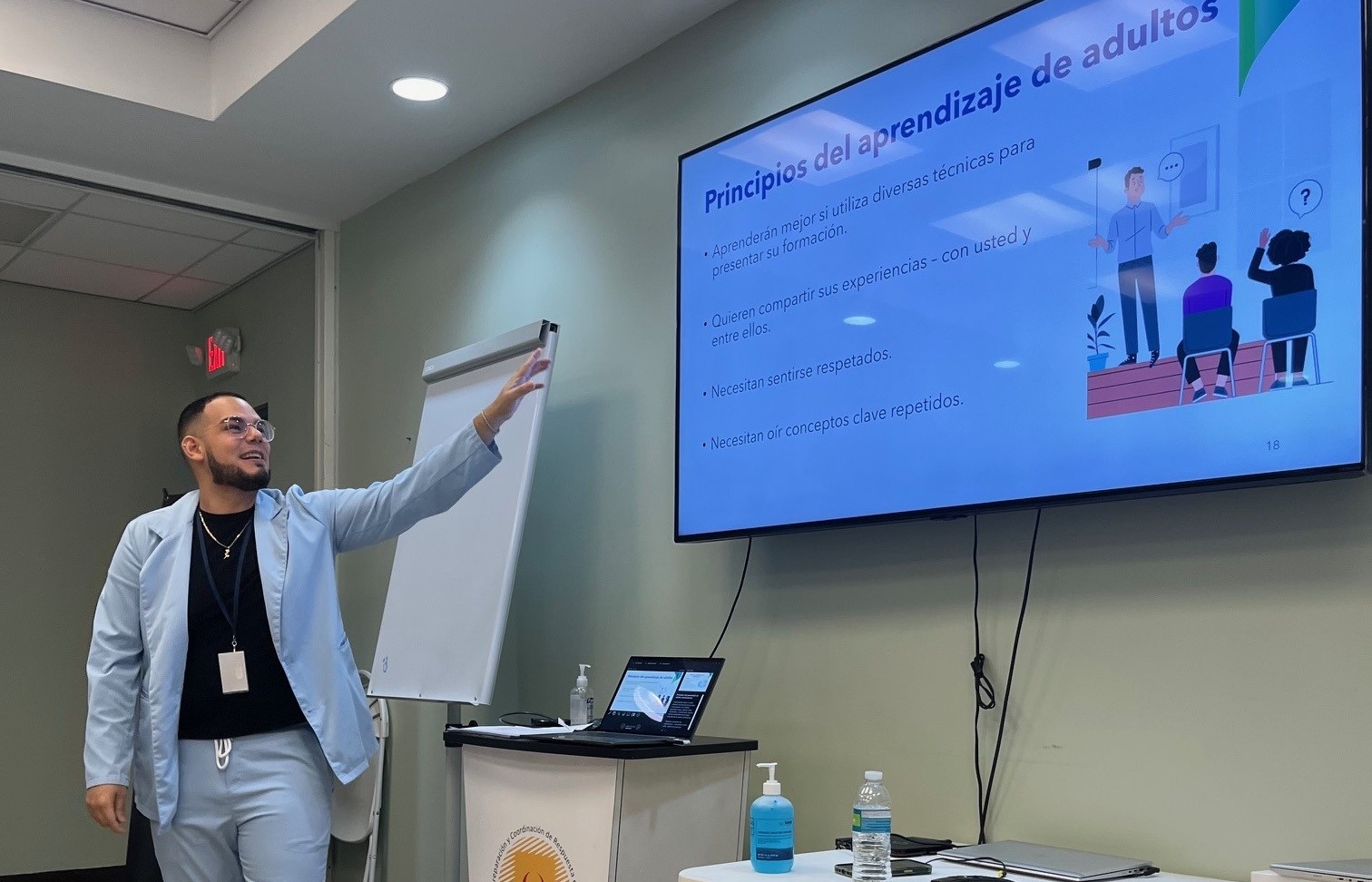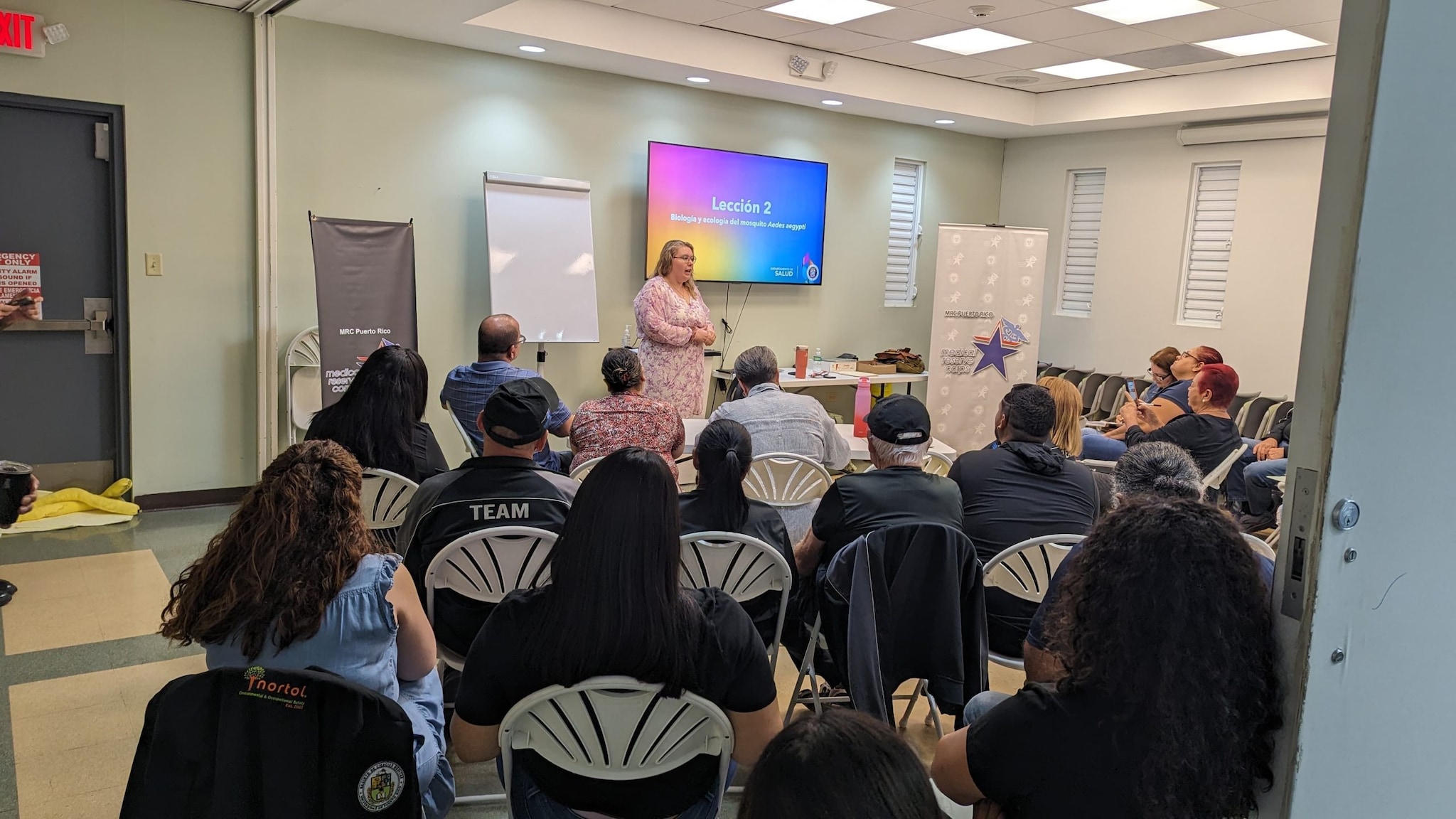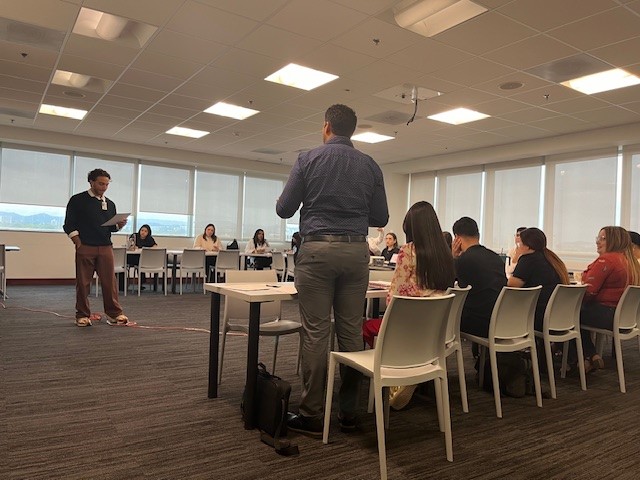At a glance
Health educators within CDC in San Juan, Puerto Rico teamed up with the Puerto Rico Department of Health (PRDH) to develop a training program to share knowledge of how to prevent dengue and control mosquitoes in communities.

Sharing dengue expertise in Puerto Rico
Helping communities stop dengue in Puerto Rico
Puerto Rico is experiencing a large dengue outbreak, with more than 3,000 cases as of September 2024 – more than double the number of dengue cases reported in 2023. Dengue virus, which is spread by mosquitoes, has caused outbreaks this year in multiple countries around the world. In facing this growing challenge, health educators within CDC knew they were not going to be able to fight the disease alone. Preventing dengue requires collaboration with community members, some of whom may not know how to protect themselves from dengue.
CDC joined forces with the Puerto Rico Department of Health (PRDH) to teach government workers, volunteers from community organizations, and the public how to identify and reduce conditions that allow mosquitoes to breed and spread dengue.
"We knew we needed to educate others who could share accurate information about how to stop the spread of dengue within the community, creating a ripple effect," says Emma Kate Sellers, one of the developers of the program. Emma is part of a CDC and Associations of Schools and Programs of Public Health fellowship program.

To develop a training program about dengue prevention and mosquito control, health educators within CDC had to gather scientifically accurate information, tailor this information to meet the needs and education levels of different audiences and ensure that the training would be engaging and effective. The team used evidence-based techniques in adult learning to create the training materials and then put their work to the test in April 2024.
Make it engaging
Educators incorporated activities to make the training interactive and reinforce key concepts. For example, one lesson included an exercise for participants to identify photos for each stage of the life cycle of the mosquito – eggs, larvae, pupae, and adult. This was used to highlight that most of the mosquito's life cycle occurs in the water, which emphasized the importance of eliminating standing water before mosquitoes are able to develop into adults and spread of dengue.
Participants took a quiz before and after the training to test their knowledge about dengue prevention and mosquito control, and scores increased. Participants also completed a satisfaction survey after the training. Participants indicated that the balance between lectures and interactive activities was just right. So not only did participants enjoy the training, but they also learned something.
The goal of the training was to share accurate information about dengue prevention and mosquito control, but also for participants to share that knowledge with others to protect their communities. One participant commented, "I plan to use the information to teach the people who I work with and to share with my family and friends."

Spreading the word
More than 100 people in Puerto Rico have already been trained with these newly developed materials. After each session, educators adapt the training based on the feedback collected from participants, so that it is constantly being improved.
"This tool has been an incredible resource to have during the current dengue outbreak in Puerto Rico," says Miladys Pérez Vélez, who leads a community outreach team at PRDH responding to dengue. "Having a readily available training tool has been key in quickly onboarding new staff to support response activities." Participants have included Medical Reserve Corp volunteers, PRDH employees, corrections officers, and others. The team continues to support PRDH in expanding the reach of the training as the battle against dengue continues.
"It is very important for those interacting closely with the community, such as PRDH outreach staff and community organization volunteers, to be equipped with accurate information about dengue prevention and mosquito control," Abdiel Flores, health education contractor (Po'okela Solutions) at CDC, says. "Sharing our expertise and combining it with the community's needs and experiences is the best way to reach the community, tailor educational interventions, and implement sustainable dengue prevention efforts."
